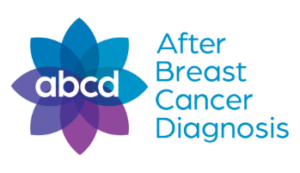*Free registration is required to use the toolkits provided within HIPxChange. This information is required by our funders and is used to determine the impact of the materials posted on the website.
About the Peer-to-Peer Breast Cancer Survivor Advocacy Toolkit
Cancer support programs for patients recently diagnosed with cancer have been in place for several decades, and can provide important psychosocial and educational support to patients. Many types of programs have been implemented in a wide variety of settings, including one-on-one interactions with peers, peer support groups in face-to-face settings or via the telephone, or online support groups.
Due to the variability in support programs that have been implemented in other organizations and the limited documentation that is available—such as the details on how to train, supervise, and document the peer support interactions—implementing a support program in your organization can present multiple challenges. Additionally, you may not have the right tools to measure how effective your support program is after you launch it.
The materials in this toolkit are intended to help you effectively implement a peer-to-peer support program between those who have completed cancer treatment and newly diagnosed patients.
Patient Survivor Advocate Program Goals
These materials were developed as part of a Patient Survivor Advocate (PSA) program at the University of Wisconsin Breast Center. The goals of the program are listed below.
- Provide peer psychosocial support and education
- Decrease anxiety in newly diagnosed patients
- Improve patient-physician interactions
- Increase understanding of the steps involved in cancer care
Who should use this toolkit?
This toolkit is intended for clinicians, researchers, or program managers who are interested in implementing a cancer patient survivor advocate program at their organization.
The materials in this toolkit were created for a peer-to-peer program for patients with breast cancer, but could be adapted to create an advocacy program for patients with other types of cancer.
What does the toolkit contain?
This toolkit contains a number of tools that you can use to develop, conduct, and evaluate a patient survivor advocate program.
Tools to implement the program
- A flowchart describing how the Patient Survivor Advocate program works from the perspective of the patient survivor advocates and newly diagnosed patients
- A sample Patient and Survivor Advocate Log for tracking program information, demographics, and diagnosis/treatment information on program participants
- Materials for the patient survivor advocate training sessions: Agenda, learning objectives, table of contents, and sample slides and handouts
Tools to evaluate the program
- A flowchart describing the evaluation process for the Patient Survivor Advocate program
- A sample Contact Log for advocates to track the frequency, type, and content of their contacts with their matched patients
- Survivor advocate, patient, and clinician surveys to assess the effectiveness of the program
Development of this toolkit
The Breast Cancer Peer-to-Peer Patient Survivor Advocacy Program Toolkit was developed by researchers and clinicians (Principal Investigator: Amye Tevaarwerk, MD) at the University of Wisconsin-Madison School of Medicine & Public Health, the UW Breast Center and the UW Carbone Cancer Center.
This work was supported by a Susan G. Komen South Central Wisconsin Community Grant award: “UWHC Breast Center – Navigation and Support for Breast Cancer Survivors” (PI: Lee Wilke, MD) and an Ambulatory Care Innovation Grant: “Development of a Breast Cancer Patient Survivor Advocate Program.” Amye Tevaarwerk receives support from the Clinical and Translational Science Award (CTSA) program, through the NIH National Center for Advancing Translational Sciences (NCATS), grants UL1TR000427and KL2TR000428. The content is solely the responsibility of the authors and does not necessarily represent the official views of the National Institutes of Health or other funders
Reference
Mirrielees JA, Breckheimer KR, White TA, Denure DA, Schroeder MM, Gaines ME, Wilke LG, Tevaarwerk AJ. Breast Cancer Survivor Advocacy at a University Hospital: Development of a Peer Support Program with Evaluation by Patients, Advocates, and Clinicians. J Cancer Educ. 2017 Mar;32(1):97-104.
Toolkit Citation
Tevaarwerk A. Breast Cancer Peer-to-Peer Patient Survivor Advocacy Program Toolkit. UW Health Breast Center, UW Carbone Cancer Center, ABCD: After Breast Cancer Diagnsosis, UW-Madison Department of Medicine, and UW Health Innovation Program; 2015. Available at: http://www.hipxchange.org/CancerAdvocacyProgram
Please send questions, comments and suggestions to HIPxChange@hip.wisc.edu


